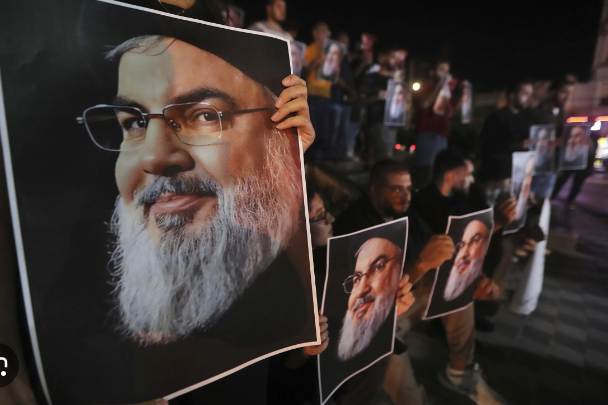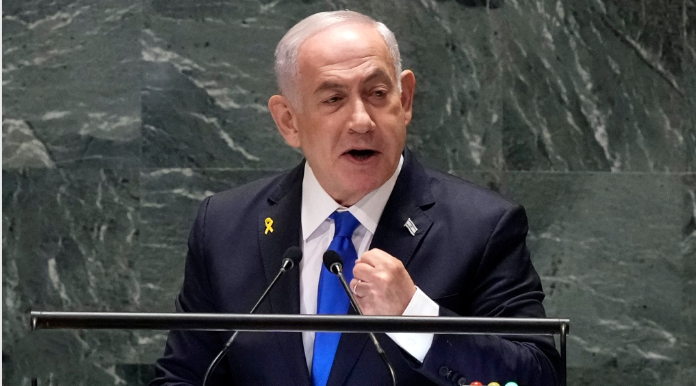By Joke Kujenya
ESCALATING VIOLENCE in Lebanon reached a critical turning point with the death of Hezbollah leader Hassan Nasrallah, confirmed by both Israeli authorities and Hezbollah following an airstrike on his underground headquarters in Beirut’s Dahiyeh district.
The attack occurred on Friday, marking a significant escalation in the conflict that has seen rising tensions in recent weeks.
Nasrallah, who led Hezbollah for over 30 years, was a pivotal figure in the region, known for transforming the group into a formidable military force.

His assassination sends shockwaves through the organization and raises questions about its future leadership.
The Israel Defence Force (IDF) stated that Nasrallah was orchestrating attacks against Israeli citizens from this location, describing him as a major threat to Israeli security.
In a statement, Hezbollah remembered Nasrallah as its “sacred martyr,” vowing to continue its fight against Israel in support of Gaza and the Palestinian cause.
The group affirmed that it remains committed to its resistance despite the loss of its leader.
Alongside Nasrallah, several Hezbollah fighters and a senior commander of Iran’s Islamic Revolutionary Guard Corps were killed in the airstrike.
The airstrikes further exacerbated an already dire humanitarian situation in Lebanon, where recent Israeli military operations have resulted in significant civilian casualties.
The United Nations reported at least 700 deaths and thousands of injuries from ongoing violence, with nearly 120,000 people displaced amid an acute economic crisis and widespread poverty.
These figures may be even higher, as the humanitarian impact of the conflict continues to unfold.
Following the attack, Israeli officials indicated they had not yet determined the full civilian toll resulting from the strikes targeting southern Beirut.
As violence further escalates, concerns grow over how Hezbollah will respond to the Israeli military’s aggressive campaign.
Some analysts speculate that the organization may have a diminished capacity for retaliation due to the loss of senior commanders and damaged infrastructure.
The conflict began intensifying earlier this month when Israel targeted communication devices linked to Hezbollah, resulting in civilian casualties.
The situation escalated further with a series of airstrikes that have drawn international condemnation and fears of an all-out regional war.
Israeli forces have expanded their operations across multiple fronts, aiming to neutralize perceived threats from Hezbollah and other Iranian-supported groups.
Hezbollah has historically positioned itself as a key ally of Iran, and the death of Nasrallah coincides with Iran’s broader military objectives in the region.
The implications of this loss extend beyond Hezbollah, potentially destabilizing the intricate network of alliances across Lebanon, Iraq, Syria, and Yemen.
International responses to Nasrallah’s death varied.
United States’ President Joe Biden labeled the killing as “a measure of justice,” acknowledging Nasrallah’s role in numerous acts of violence, including against American interests.
He urged for a de-escalation of the conflict while affirming Israel’s right to defend itself against Hezbollah and other militant groups.
As news of Nasrallah’s death spread, the atmosphere in Hezbollah strongholds became charged with grief and anger.
Residents of the Dahiyeh neighbourhood expressed their sorrow, mourning not only the loss of a leader but also the uncertainty that lies ahead.
Gunfire erupted as supporters noted his memory, reflecting the depth of allegiance and the potential for unrest in the wake of this significant event.
Current affairs observers say the death of Hassan Nasrallah marks a pivotal moment in the ongoing Israel-Hezbollah conflict, underscoring the volatility of the region and the potential for further escalation as both sides navigate the aftermath of this major shift.





